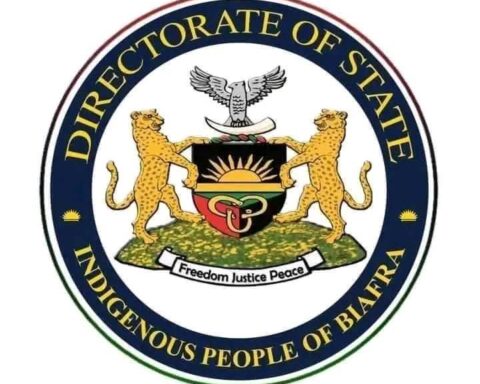The Federal Inland Revenue Service (FIRS) has come out strongly in defence of the Federal Government’s current borrowing strategy, insisting that loans remain a normal and necessary part of national budgeting.
Speaking during a “Meet-the-Press” event organised by the Presidential Communications Team at the State House, FIRS Chairman Zacch Adedeji maintained that borrowing must be understood as just one leg of the budget tripod: revenue, expenditure, and loans.
Legislative Approval: Adedeji emphasised that all government borrowing is anchored in legislative oversight. Borrowing components are written into the Appropriation Act approved by the National Assembly, so the Executive acts only within those mandates.
Replacing Ways and Means: He also noted that the Tinubu administration has ended the practice of “Ways and Means” financing via the Central Bank, instead converting that facility into a structured, repayable federal loan mechanism. This, he said, reduces distortions and helps stabilize the economy and supports the exchange rate.
Revenue Growth and Reforms: FIRS says that government revenue has surged—especially non-oil receipts. To reduce over-dependence on borrowing, reforms to Personal Income Tax (PIT) and Company Income Tax (CIT) are slated to begin in January.
Despite increases in revenue from agencies like FIRS, NNPC, and Customs, questions have continued to be raised by lawmakers and the public about why the government still pursues loans. Critics argue that with substantial surplus revenue, borrowing seems less necessary.
FIRS and other officials counter that even with improved revenue, the budget deficit is still substantial. For example, the 2024 budget carried a shortfall of about ₦9.7 trillion in a ₦35.5 trillion framework. Such deficits, they say, cannot be bridged by revenue alone.
While defending borrowing, the government and FIRS have pointed to measures to ensure that borrowing remains sustainable and beneficial:
Ensuring that borrowed funds are directed into growth-creating infrastructure — roads, power, transport, etc. — which in turn should generate future tax revenue.
Reforms in tax administration and revenue generation to widen the base, especially via PIT and CIT reforms.
Keeping borrowing within limits set by legislation and debt management frameworks, so as to avoid unsustainable debt servicing burdens.
Fiscal Discipline: The debate underscores the tension between increasing government revenue and controlling borrowing. Some worry that borrowing too much, even when revenues are rising, could stain credit ratings or lead to inflationary pressures.
Public Perception: Citizens are increasingly asking whether revenue surpluses should reduce the need for external and domestic debt; whether borrowing is being transparently used; and whether the returns on projects financed by loans justify their costs.
Economic Stability: If managed well, consistent borrowing tied to well-executed projects and revenue reforms could bolster economic growth and improve infrastructure. But mismanagement could lead to high debt service costs that crowd out other spending.
The position of FIRS is clear: borrowing—when approved by the legislature, carefully structured, and coupled with revenue reforms—remains a valid tool in Nigeria’s fiscal strategy. With reforms to PIT, CIT, and more non-oil revenue, the goal is to reduce dependency on debt over time.
But the challenge for the government will be in maintaining transparency, ensuring borrowed funds are used effectively, and balancing debt obligations with the need to invest in public services and national development.



























